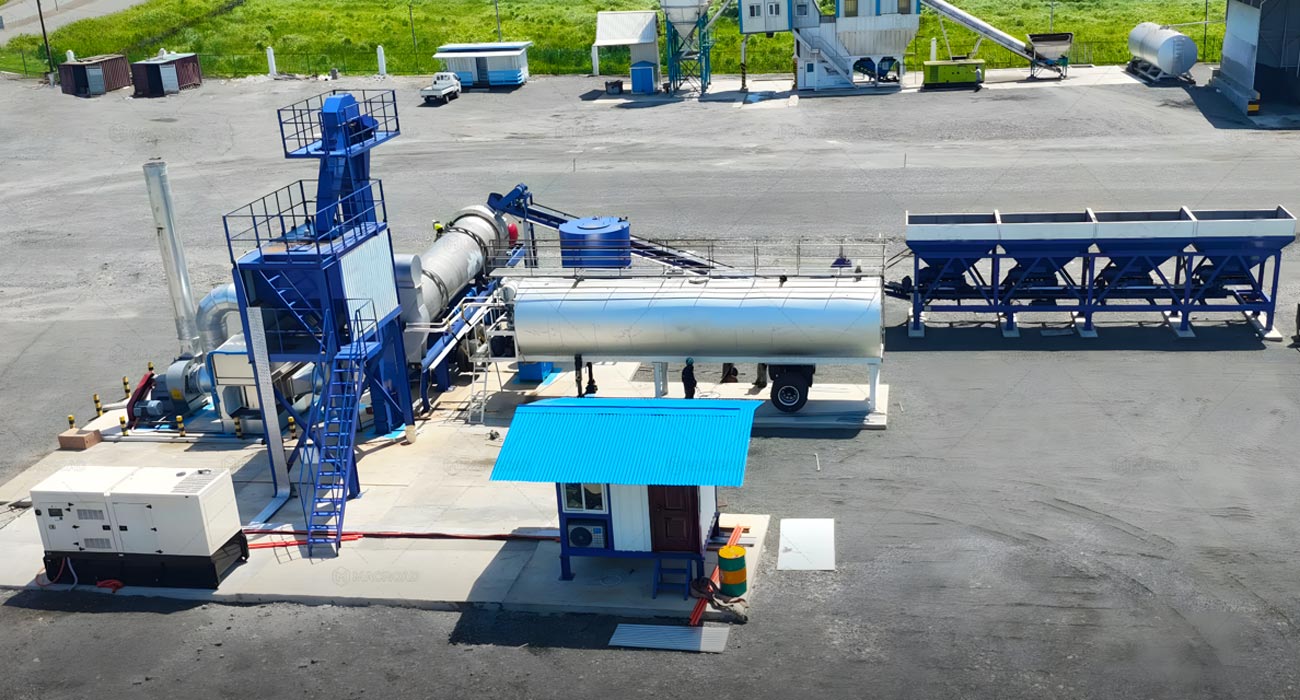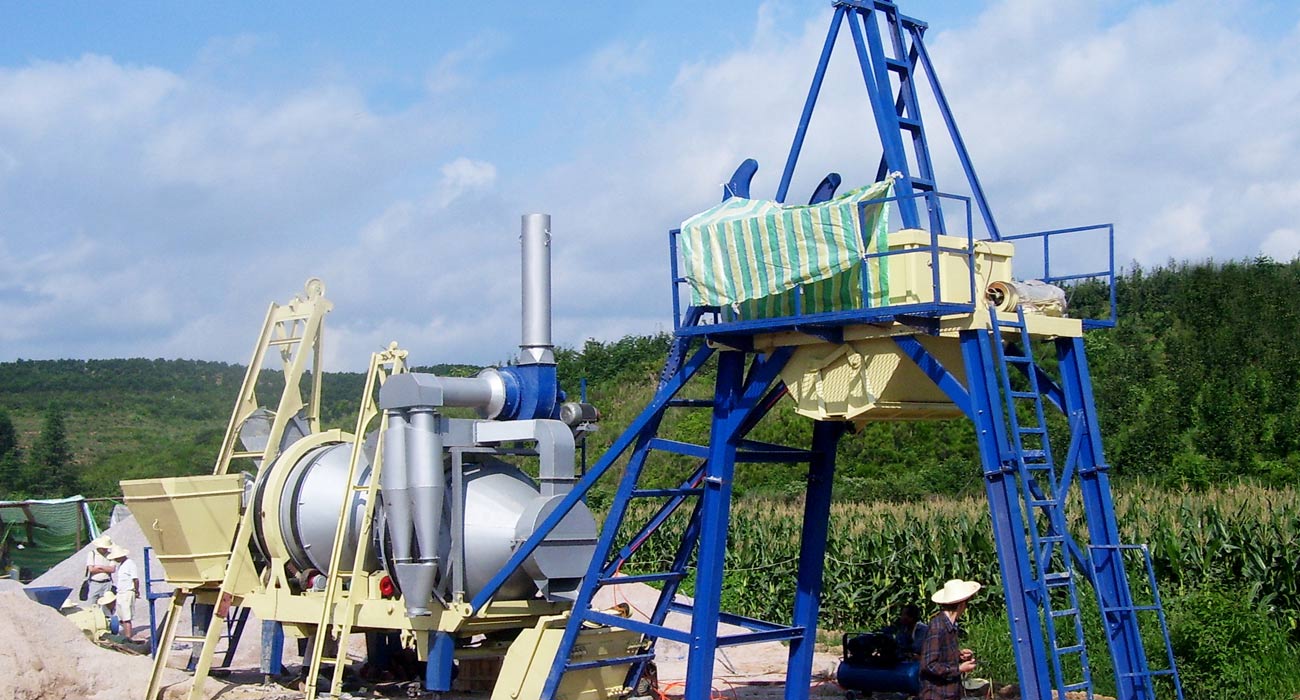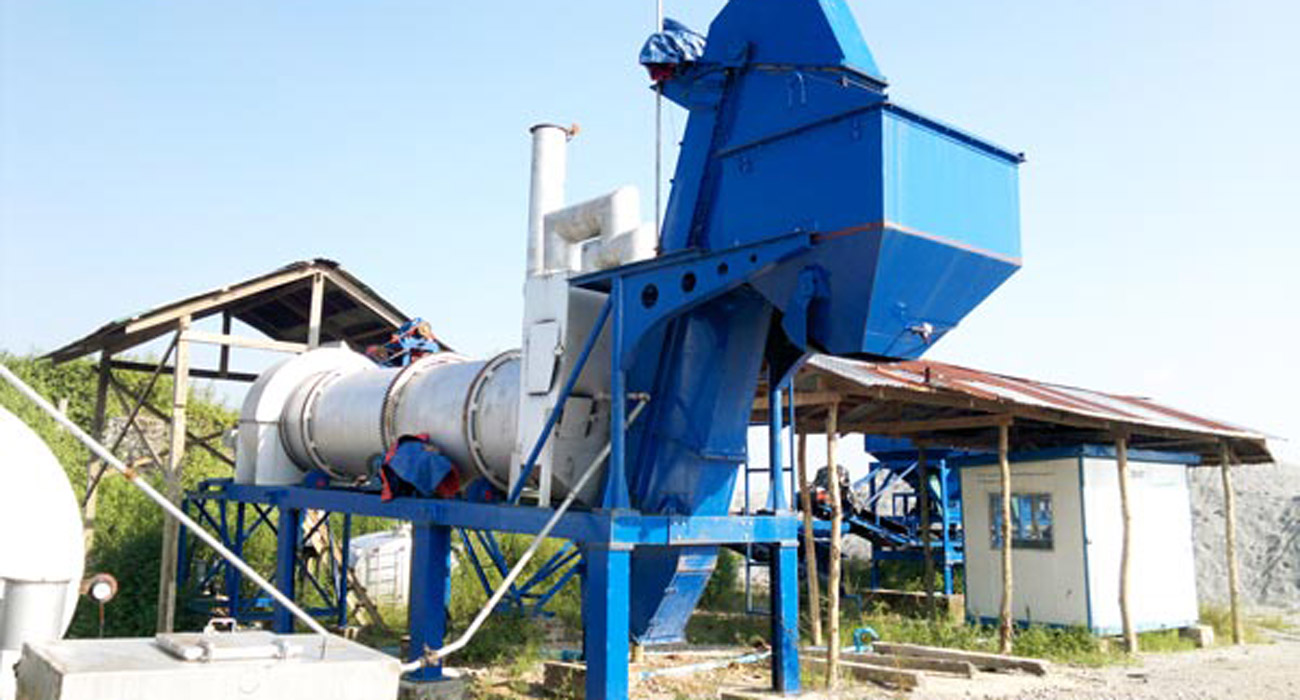16
0
0
Balancing Portability and Cost in Mini Mobile Asphalt Plants
Mini mobile asphalt plants are increasingly popular for small-scale road projects due to their compact size and ease of relocation. However, the cost structure of these plants can be complex, requiring manufacturers to carefully balance portability with cost-effectiveness. This article explores how manufacturers can design mini mobile asphalt plants that meet customer needs while controlling costs, ensuring competitiveness in the market.

Prioritizing Portability with Smart Design Choices
One of the primary advantages of a mini mobile asphalt plant is its portability, which is essential for small-scale projects that require flexibility. To enhance this feature, manufacturers often prioritize the selection of lightweight materials and modular designs that can significantly reduce transportation volume.
For example, using high-strength aluminum or composite materials instead of traditional steel can help lower the overall weight of the plant. This not only facilitates easier relocation but also reduces fuel costs during transportation. Additionally, a modular design allows different components of the plant to be easily disassembled, making it simpler to transport and set up at various job sites.
However, these design choices must be made with cost considerations in mind. While lightweight materials can improve portability, they often come with higher procurement costs. Manufacturers must weigh the benefits of enhanced mobility against the potential increase in costs to ensure that the final product remains competitively priced in the market.

Evaluating Chassis Options for Cost Control
Another critical aspect of designing a mini mobile asphalt plant is the selection of the chassis. Manufacturers face a decision between adopting a standard general-purpose chassis to minimize procurement costs or customizing a special lightweight chassis to improve relocation efficiency. Each option has its advantages and disadvantages.
A standard chassis can significantly reduce initial costs since it is readily available and widely used. This approach allows manufacturers to keep the overall mini asphalt plant cost down, making the product more appealing to budget-conscious customers. However, a general-purpose chassis may not fully optimize the plant’s portability, potentially hindering efficiency during relocations.
On the other hand, a customized lightweight chassis can enhance mobility and make the plant more suitable for frequent moves. While this option may increase the initial investment, it could lead to long-term savings by reducing transportation expenses and improving operational efficiency. Manufacturers must carefully evaluate these trade-offs, considering the specific needs of their target customers and the overall market demand.

Optimizing Modular Design for Cost Efficiency
The modular mixing unit is another crucial component of mini mobile asphalt plants that requires careful design and optimization. This unit must be quick to disassemble and reassemble, allowing for efficient setup at various locations. However, ensuring durability while controlling production costs can be challenging.
To optimize the manufacturing process, manufacturers can implement lean production techniques that focus on minimizing waste and maximizing efficiency. By streamlining the assembly process and using standardized components where possible, manufacturers can reduce production costs without sacrificing the durability required for frequent relocations.
Furthermore, investing in quality control measures during the manufacturing process can help ensure that the modular units are built to withstand the rigors of transportation and repeated use. This approach not only enhances the reliability of the mini mobile asphalt plant but also improves customer satisfaction, as clients are less likely to encounter issues during operation.
Conclusion
In conclusion, the design of mini mobile asphalt plants requires a careful balance between portability and cost-effectiveness. By prioritizing lightweight materials, evaluating chassis options, and optimizing the modular design, manufacturers can create products that meet the needs of small-scale road projects while controlling the mini asphalt plant cost. This strategic approach ensures that manufacturers remain competitive in the market, catering to customers who value flexibility and efficiency in their construction operations. As the demand for mini mobile asphalt plants continues to grow, these design considerations will be vital for success in the industry.

Prioritizing Portability with Smart Design Choices
One of the primary advantages of a mini mobile asphalt plant is its portability, which is essential for small-scale projects that require flexibility. To enhance this feature, manufacturers often prioritize the selection of lightweight materials and modular designs that can significantly reduce transportation volume.
For example, using high-strength aluminum or composite materials instead of traditional steel can help lower the overall weight of the plant. This not only facilitates easier relocation but also reduces fuel costs during transportation. Additionally, a modular design allows different components of the plant to be easily disassembled, making it simpler to transport and set up at various job sites.
However, these design choices must be made with cost considerations in mind. While lightweight materials can improve portability, they often come with higher procurement costs. Manufacturers must weigh the benefits of enhanced mobility against the potential increase in costs to ensure that the final product remains competitively priced in the market.
Evaluating Chassis Options for Cost Control
Another critical aspect of designing a mini mobile asphalt plant is the selection of the chassis. Manufacturers face a decision between adopting a standard general-purpose chassis to minimize procurement costs or customizing a special lightweight chassis to improve relocation efficiency. Each option has its advantages and disadvantages.
A standard chassis can significantly reduce initial costs since it is readily available and widely used. This approach allows manufacturers to keep the overall mini asphalt plant cost down, making the product more appealing to budget-conscious customers. However, a general-purpose chassis may not fully optimize the plant’s portability, potentially hindering efficiency during relocations.
On the other hand, a customized lightweight chassis can enhance mobility and make the plant more suitable for frequent moves. While this option may increase the initial investment, it could lead to long-term savings by reducing transportation expenses and improving operational efficiency. Manufacturers must carefully evaluate these trade-offs, considering the specific needs of their target customers and the overall market demand.

Optimizing Modular Design for Cost Efficiency
The modular mixing unit is another crucial component of mini mobile asphalt plants that requires careful design and optimization. This unit must be quick to disassemble and reassemble, allowing for efficient setup at various locations. However, ensuring durability while controlling production costs can be challenging.
To optimize the manufacturing process, manufacturers can implement lean production techniques that focus on minimizing waste and maximizing efficiency. By streamlining the assembly process and using standardized components where possible, manufacturers can reduce production costs without sacrificing the durability required for frequent relocations.
Furthermore, investing in quality control measures during the manufacturing process can help ensure that the modular units are built to withstand the rigors of transportation and repeated use. This approach not only enhances the reliability of the mini mobile asphalt plant but also improves customer satisfaction, as clients are less likely to encounter issues during operation.
Conclusion
In conclusion, the design of mini mobile asphalt plants requires a careful balance between portability and cost-effectiveness. By prioritizing lightweight materials, evaluating chassis options, and optimizing the modular design, manufacturers can create products that meet the needs of small-scale road projects while controlling the mini asphalt plant cost. This strategic approach ensures that manufacturers remain competitive in the market, catering to customers who value flexibility and efficiency in their construction operations. As the demand for mini mobile asphalt plants continues to grow, these design considerations will be vital for success in the industry.
Signatur